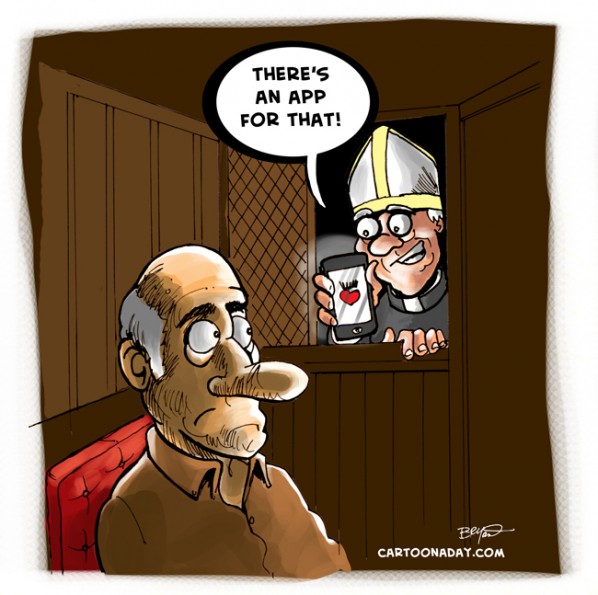Bishop Morlino would say this is a relative sign in many ways. I mean really, how many ways could one take the meaning of the words pink slip?
I've been following the story out of Wisconsin on Governor Walker's attempts at union busting under the guise of budget balancing. I must admit I got a chuckle out of his phony phone conversation in which he thought he was speaking with and colluding in that endeavor with a really really rich union buster like David Koch, and that got me wondering what Bishop Morlino of Madison, Wisconsin thought of union busting. I wondered if he agreed with the sentiments of his fellow bishop Listecki, or if he was more of a right to work state kind of guy who believed any boss had the right to fire any employee for any or no reason, such as writing a speculative paper for one's Master's degree in theology.
What I found instead is that I couldn't access the current Madison Catholic Herald which has Morlino's thoughts. I did find a traditionalist blog called the Catholic Badger which had this quote from the paper on the distribution of Morlino's thoughts:
This column is the bishop’s communication with the faithful of the Diocese of Madison. Any wider circulation reaches beyond the intention of the bishop.
I guess my ISP address is beyond the intention of the bishop, but it wasn't beyond his intention for an article he wrote in 2008 on why Madison Catholics should pony up the millions to replace the Cathedral of St Rafael which was burned to the ground in March of 2005. Rebuilding the Cathedral and the money this would cost has been somewhat controversial. Bishop Morlino came up with a fascinating logical system to justify the expense. The article was actually a three part article, but he summed up the first two parts with the following paragraphs. I should say that these two first parts deal with the fact Jesus came in a particular time and a particular space there for God approves of sacred times and sacred places--especially those having to do with sacramental Catholicism-----and BISHOPS!
Bishop's sacred time, space - the Cathedral
........Given everything that we've said to this point, what would be more reasonable than to say that the bishop, as the chief teacher, the chief sanctifier, and the chief governor of the diocese, needs, himself, sacred time and space. And the bishop's sacred time and space has a name - it's a cathedral!
The cathedral is named after the chair, which in Latin is cathedra, which only the cathedral has, from which the bishop exercises his office of teaching, sanctifying, and governing. And that is where the chair of the successor of the apostles rests.
So, if one understands the Eternal Plan of the Trinity - Jesus Christ coming in space and time, and making space and time sacred by His coming; and if one understands that He wishes to continue that space- and time-limited presence through His Body, the Church; and if one understands that the Holy Spirit gives life to the Church through the celebration of Sacraments; and if one understands that celebrating Sacraments requires sacred times and places; and if one understands that the teaching, and sanctifying, and governing of the Church happens through bishops, priests, and deacons; and if one understands that the bishop is the chief teacher, governor, and sanctifier in the diocese, then one should understand, by a logical step, that the bishop, in order to carry out his ministry needs the sacred time and space which comes with a cathedral. It could not be any other way if Jesus Christ is who He is!
So there you have it if you faithfully followed this, Jesus Christ because of who he is, makes it quite plain that bishops need expensive cathedrals in which to put their special chair which signifies their special connection to the Apostles, the very men who were actually in Jesus's time and space at which time they were taught by Jesus who did not actually have a chair or a bed or much of a cloak or even a place to lay his head. I hope you got all that because I don't.
As to what the good Bishop thinks about this whole messy union fight with the union busting governor thing, well, it's all a perfect example of secular relativism because what's fair for me is in my eyes and what's fair for you is in your eyes and so both sides are right and the Church in Madison can do no less that take a neutral stance because such a relativistic society leaves no other choice. Hmmmm. And here all along I thought there were a couple of Vatican encyclicals, like the most recent one, coming down squarely on the side of labor unions. Maybe that was in a different time and space. After all even time itself is relative.









